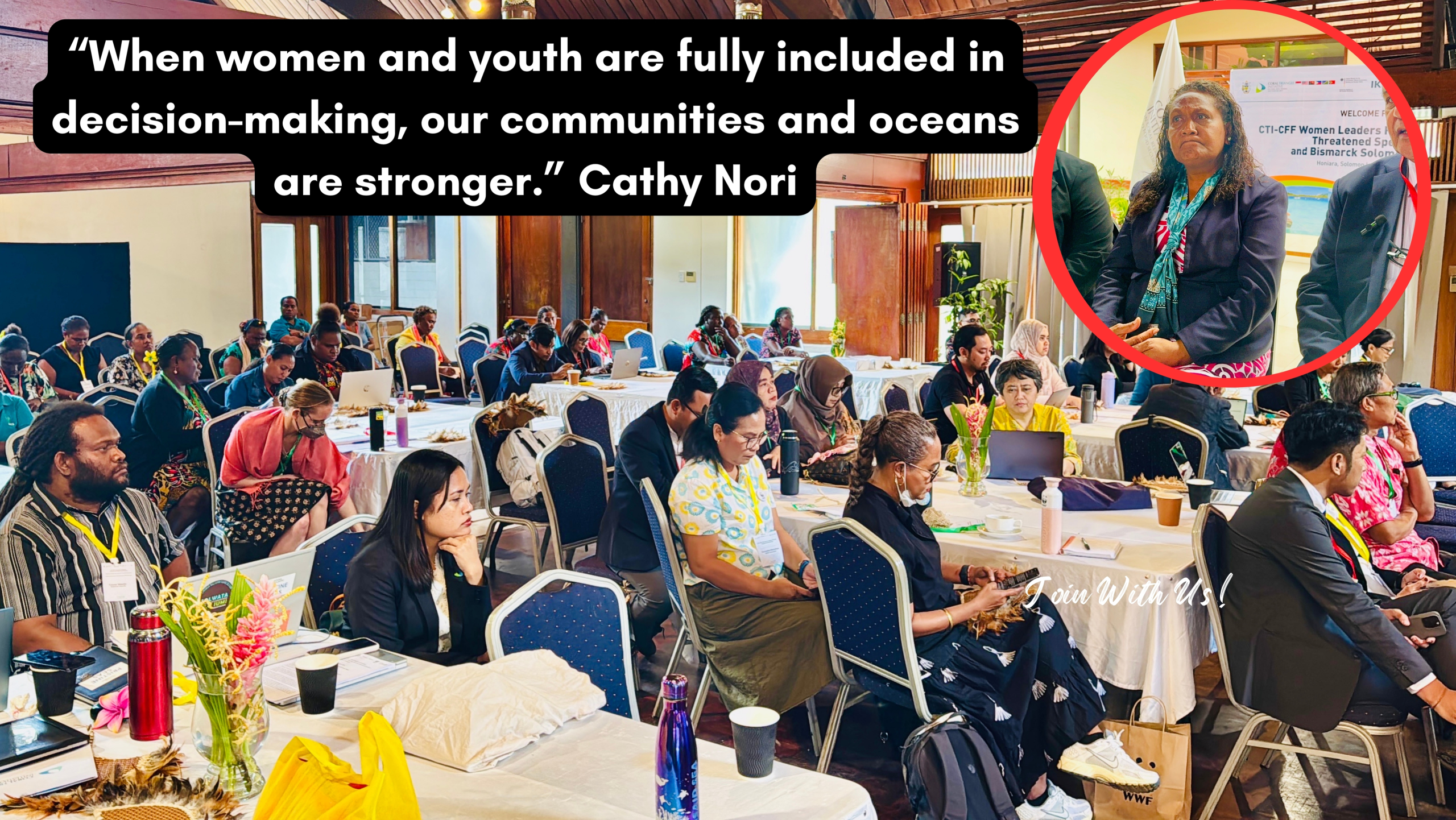
A week-long regional gathering on marine conservation, threatened species, and women’s leadership is currently underway in Honiara.
The gathering brings together leaders, experts, and community champions from across the Coral Triangle and Pacific to discuss issues concerning the region.
The event combines multiple high-level meetings under the Coral Triangle Initiative on Coral Reefs, Fisheries and Food Security (CTI-CFF), including the Women Leaders Forum Regional Exchange, the Threatened Species Regional Exchange, and the inaugural Bismarck Solomon-Seas Seascape Dialogue.
Officiating the meeting, Minister for Women, Youth, Children and Family Affairs Cathy Nori highlighted the significance of inclusive leadership in marine management.
“When women and youth are fully included in decision-making, our communities and oceans are stronger,” she said, linking the forum to Solomon Islands’ commitments under the SDGs and CEDAW.
This year also marks 10 years of the Women Leaders Forum (WLF), a platform that has strengthened women’s roles in fisheries and coastal conservation across the Coral Triangle 6 countries, (Indonesia, Malaysia, Papua New Guinea, Philippines, Solomon Islands, and Timor-Leste.)
There are also meetings and discussions on threatened species, where delegates are reviewing regional progress on marine turtles, sharks, rays, and marine mammals, and will draft a 2026–2028 Threatened Species Workplan.
A key highlight is the WWF-supported ShellBank and Blue Corridors for Turtles Workshop, which introduces new tools to combat illegal trade and protect migratory turtle populations.
For the first time, the Bismarck Solomon-Seas Seascape Dialogue is also convening, with Solomon Islands, Papua New Guinea, and Indonesia working together on transboundary conservation and migratory species management.
CTI-CFF Executive Director Dr Frank Keith Griffin described the gathering as “a powerful example of unity, knowledge-sharing, and inclusive leadership.”
The event will conclude with the adoption of two key outcomes: a shared framework for gender and social inclusion across CTI-CFF programming, and a joint regional workplan for protecting threatened species.
